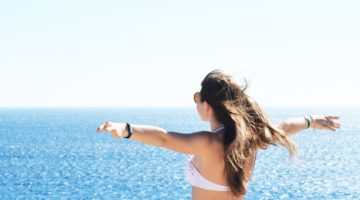Water is essential for human life to exist and function properly. The only thing more important than water for your body is oxygen. You can then start to understand how important it is for us to stay hydrated with water, but this fluid is not the only source to receive it from.
Fruits and vegetables contain water naturally, and a wide variety of them contain higher amounts than others. Let’s take a closer look at how water is beneficial for us, and what foods we probably should be eating.
The benefits of water
The average adult body weight is around 60% water, infants are approximately 75% water, and elderly adults are 55%. These are rather high numbers that account for weight in our body, but we can go even further to show that other important areas are high in water content as well.
- The brain is around 70% water
- Lungs are close to 90% water
- Blood is about 82% water
We already know that these important areas need to function properly to keep our bodies alive, and water intake needs to be sufficient since they are primarily made of this fluid. Other functions that water is vital for includes keeping your joints lubricated; body temperature regulated, and filters out impurities from your body.
Does eating fruits and vegetables truly keep you hydrated?
Studies show that around 22% of the water consumed in the US comes from foods . Another study based on children showed that frequent consumption of fruits and vegetables kept their bodies hydrated.
There are several studies that come to similar conclusions, and in the end it just makes sense that consuming something full of liquid keeps you hydrated one way or another. Here is a list of water dense fruits and vegetables to consider.
90-99% water content
- Cantaloupe
- Strawberries
- Watermelon
- Lettuce
- Celery
- Spinach
- Cabbage
80-89% water content
- Oranges
- Grapes
- Apples
- Cooked Broccoli
- Carrots
- Pineapple
Almost all of these whole foods are available in most groceries, but sometimes it may depend on what season it is. Consuming these fruits and vegetables are the best way to gain extra water plus plenty of nutrients.
Other benefits received from fruits and vegetables
As mentioned, an abundance of nutrients are found in all the foods listed. Some have more than others, but the most common nutrients found in fruits and vegetables are vitamins, minerals, antioxidants, and fiber.
Fiber is unable to be actually broken down through digestion, so they are considered a zero calorie nutrient. However, they are capable of burning more calories, reducing the risks of heart disease, and also help flush toxins out.
A diet rich in fiber is important for the body to have a healthy digestive system. Then you also have to consider the other nutrients received labeled as vitamins and minerals, which are referred to as micronutrients.
They are smaller units of nutrients compared to the larger macronutrients (protein, carbs, and fats). These smaller nutrients maintain a healthy metabolism, keep our bones strong, and even allow our brain to process more efficiently. They are just as essential as protein, but often left out of discussions.
How much water is enough to stay healthy?
The recommended amount of water to drink daily for men is 3,000ml, which is around 13 cups of water. For women the daily recommended amount is 2,200ml or around 9-10 cups of water.
However, this recommended amount is for the average man or woman with no physical activity. You will have to consume a few cups more if you end up in situations where you sweat more or endure exercise training.
The “drink glasses of water a day” is just a concept that has never been proven scientifically. But you can assume that drinking this much water a day is better than two glasses of water daily.
In the end, the consensus is that water is essential for life, and should be obtained through fluids and foods regularly. Fruits and vegetables contain water and valuable nutrients, so you get two benefits from one source.
Want to stay hydrated through other sources? Then get started on these fruits and vegetables immediately!
If you enjoyed this post, feel free to share it with your friends and family. After all, sharing is caring!
Author: Demmy James
Demmy James is a fitness buff, strength and conditioning specialist and content contributor with Muscle & Strength. He is constantly looking to inspire and motivate through his writings.














